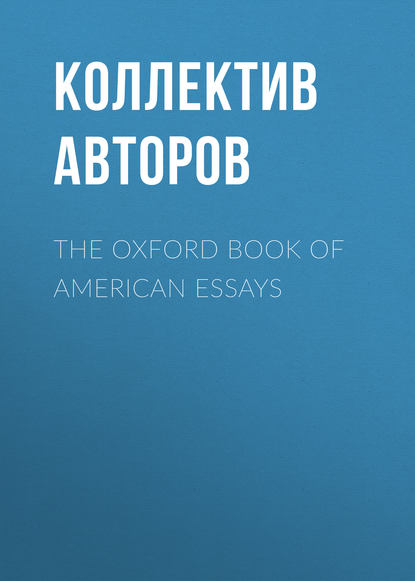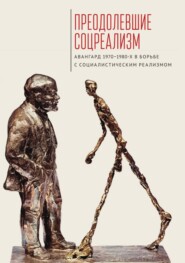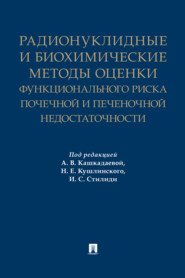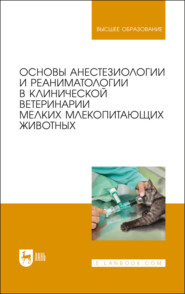По всем вопросам обращайтесь на: info@litportal.ru
(©) 2003-2024.
✖
The Oxford Book of American Essays
Настройки чтения
Размер шрифта
Высота строк
Поля
The last scene which we are allowed to have of Shakspeare’s Lear, for the simply pathetic, was played by Kean with unmatched power. We sink down helpless under the oppressive grief. It lies like a dead weight upon our hearts. We are denied even the relief of tears; and are thankful for the shudder that seizes us when he kneels to his daughter in the deploring weakness of his crazed grief.
It is lamentable that Kean should not be allowed to show his unequaled powers in the last scene of Lear, as Shakspeare wrote it; and that this mighty work of genius should be profaned by the miserable, mawkish sort of by-play of Edgar’s and Cordelia’s loves. Nothing can surpass the impertinence of the man who made the change, but the folly of those who sanctioned it.
When I began, I had no other intention than that of giving a few general impressions made upon me by Kean’s acting; but, falling accidentally upon his Lear, I have been led, unawares, into particulars. It is only to take these as some of the instances of his powers in Lear, and then to think of him as not inferior in his other characters, and some notion may be formed of the effect of Kean’s playing upon those who understand and like him. Neither this, nor anything I might add, would be likely to reach his great and various powers.
If it could be said of anyone, it might be said of Kean, that he does not fall behind his author, but stands forward, the living representative of the character he has drawn. When he is not playing in Shakspeare, he fills up where his author is wanting; and when in Shakspeare, he gives not only what is set down, but whatever the situation and circumstances attendant upon the being he personates would naturally call forth. He seems, at the time, to have possessed himself of Shakspeare’s imagination, and to have given it body and form. Read any scene in Shakspeare, – for instance, the last of Lear that is played, – and see how few words are there set down, and then remember how Kean fills out with varied and multiplied expression and circumstances, and the truth of this remark will be obvious enough. There are few men, I believe, let them have studied the plays of Shakspeare ever so attentively, who can see Kean in them without confessing that he has helped them to a truer and fuller conception of the author, notwithstanding what their own labors had done for them.
It is not easy to say in what character Kean plays best. He so fits himself to each in turn, that if the effect he produces at one time is less than at another, it is because of some inferiority in stage-effect in the character. Othello is probably the character best adapted to stage-effect, and Kean has an uninterrupted power over us in playing it. When he commands, we are awed; when his face is sensitive with love and love thrills in his soft tones, all that our imaginations had pictured to us is realized. His jealousy, his hate, his fixed purposes, are terrific and deadly; and the groans wrung from him in his grief have the pathos and anguish of Esau’s, when he stood before his old, blind father, and sent up "an exceeding bitter cry."
Again, in Richard, how does he hurry forward to his object, sweeping away all between him and it! The world and its affairs are nothing to him, till he gains his end. He is all life, and action, and haste, – he fills every part of the stage, and seems to do all that is done.
I have before said that his voice is harsh and breaking in his high tones, in his rage, but that this defect is of little consequence in such places. Nor is it well suited to the more declamatory parts. This, again, is scarce worth considering; for how very little is there of mere declamation in good English plays! But it is one of the finest voices in the world for all the passions and feelings which can be uttered in the middle and lower tones. In Lear, —
"If you have poison for me, I will drink it."
And again, —
"You do me wrong to take me out o’ the grave.
Thou art a soul in bliss."
Why should I cite passages? Can any man open upon the scene in which these are contained, without Kean’s piteous looks and tones being present to him? And does not the mere remembrance of them, as he reads, bring tears into his eyes? Yet, once more, in Othello, —
"Had it pleased Heaven
To try me with affliction," &c.
In the passage beginning with there was "a mysterious confluence of sounds" passing off into infinite distance, and every thought and feeling within him seemed traveling with them.
"O, now for ever
Farewell the tranquil mind," —
How graceful he is in Othello! It is not a practiced, educated grace, but the "unbought grace" of his genius, uttering itself in its beauty and grandeur in the movements of the outward man. When he says to Iago so touchingly, "Leave me, leave me, Iago," and, turning from him, walks to the back of the stage, raising his hands, and bringing them down upon his head, with clasped fingers, and stands thus with his back to us, there is a grace and majesty in his figure which we look on with admiration.
Talking of these things in Kean is something like reading the Beauties of Shakspeare; for he is as true in the subordinate as in the great parts. But he must be content to share with other men of genius, and think himself fortunate if one in a hundred sees his lesser beauties, and marks the truth and delicacy of his under-playing. For instance, when he has no share in the action going on, he is not busy in putting himself into attitudes to draw attention, but stands or sits in a simple posture, like one with an engaged mind. His countenance, too, is in a state of ordinary repose, with but a slight, general expression of the character of his thoughts; for this is all the face shows, when the mind is taken up in silence with its own reflections. It does not assume marked or violent expressions, as in soliloquy. When a man gives utterance to his thoughts, though alone, the charmed rest of the body is broken; he speaks in his gestures too, and the countenance is put into a sympathizing action.
I was first struck with this in his Hamlet; for the deep and quiet interest, so marked in Hamlet, made the justness of Kean’s playing, in this respect, the more obvious. And since then, I have observed him attentively, and have found the same true acting in his other characters.
This right conception of situation and its general effect seems to require almost as much genius as his conceptions of his characters, and, indeed, may be considered as one with them. He deserves praise for it; for there is so much of the subtilty of nature in it, if one may so speak, that while a few are able, with his help, to put themselves into the situation, and perceive the justness of his acting in it, the rest, both those who like him upon the whole, as well as those who profess to see little in him, will be apt to let it pass by without observing it.
Like most men, however, Kean receives a partial reward, at least, for his sacrifice of the praise of the many to what he feels to be the truth. For when he passes from the state of natural repose, even into that of gentle motion and ordinary discourse, he is immediately filled with a spirit and life, which he makes everyone feel who is not armor-proof against him. This helps to the sparkling brightness and warmth of his playing, the grand secret of which, like that of colors in a picture, lies in a just contrast. We can all speculate concerning the general rules upon this; but when the man of genius gives us their results, how few are there who can trace them out with an observant eye, or look with a discerning satisfaction upon the great whole. Perhaps this very beauty in Kean has helped to an opinion, which, no doubt, is true, that he is, at times, too sharp and abrupt. I well remember, while once looking at a picture in which the shadow of a mountain fell, in strong outline, upon a part of a stream, I overheard some quite sensible people expressing their wonder that the artist should have made the water of two colors, seeing it was all one and the same thing.
Instances of Kean’s keeping of situations were striking in the opening of the trial scene in The Iron Chest, and in Hamlet, when the father’s ghost tells the story of his death.
The composure to which he is bent up, in the former, must be present with all who saw him. And, though from the immediate purpose, shall I pass by the startling and appalling change, when madness seized upon his brain, with the swiftness and power of a fanged monster? Wonderfully as this last part was played, we cannot well imagine how much the previous calm, and the suddenness of the unlooked-for change from it, added to the terror of the scene. The temple stood fixed on its foundations; the earthquake shook it, and it was a heap. Is this one of Kean’s violent contrasts?
While Kean listened, in Hamlet, to the father’s story, the entire man was absorbed in deep attention, mingled with a tempered awe. His posture was simple, with a slight inclination forward. The spirit was the spirit of his father, whom he had loved and reverenced, and who was to that moment ever present in his thoughts. The first superstitious terror at meeting him had passed off. The account of his father’s appearance given him by Horatio and the watch, and his having followed him some distance, had, in a degree, familiarized him to the sight, and he stood before us in the stillness of one who was to hear, then or never, what was to be told, but without that eager reaching forward which other players give, and which would be right, perhaps, in any character but that of Hamlet, who connects the past and what is to come with the present, and mingles reflection with his immediate feelings, however deep.
As an instance of Kean’s familiar, and, if I may be allowed to term, domestic acting, the first scene in the fourth act of his Sir Giles Overreach may be taken. His manner at meeting Lovell and through the conversation with him, the way in which he turns his chair and leans upon it, were as easy and natural as they could have been in real life, had Sir Giles been actually existing, and engaged at that moment in conversation in Lovell’s room.
It is in these things, scarcely less than in the more prominent parts of his playing, that Kean shows himself the great actor. He must always make a deep impression; but to suppose the world at large capable of a right estimate of his different powers, would be forming a judgment against every-day proof. The gradual manner in which the character of his playing has opened upon me satisfies me, that in acting, as in everything else, however deep may be the first effect of genius upon us, we come slowly, and through study, to a perception of its minute beauties and delicate characteristics. After all, the greater part of men seldom get beyond the first general impression.
As there must needs go a modicum of fault-finding along with commendation, it may be well to remark, that Kean plays his hands too much at times, and moves about the dress over his breast and neck too frequently in his hurried and impatient passages, and that he does not always adhere with sufficient accuracy to the received readings of Shakspeare, and that the effect would be greater, upon the whole, were he to be more sparing of sudden changes from violent voice and gesticulation to a low conversation-tone and subdued manner.
His frequent use of these in Sir Giles Overreach is with good effect, for Sir Giles is playing his part; so, too, in Lear, for Lear’s passions are gusty and shifting; but, in the main, it is a kind of playing too marked and striking to bear so frequent repetition, and had better sometimes be spared, where, considered alone, it might be properly enough used, for the sake of bringing it in at some other place with greater effect.
It is well to speak of these defects, for though the little faults of genius, in themselves considered, but slightly affect those who can enter into its true character, yet such are made impatient at the thought, that an opportunity is given those to carp who know not how to commend.
Though I have taken up a good deal of room, I must end without speaking of many things which occur to me. Some will be of the opinion that I have already said enough. Thinking of Kean as I do, I could not honestly have said less; for I hold it to be a low and wicked thing to keep back from merit of any kind its due, – and, with Steele, that "there is something wonderful in the narrowness of those minds which can be pleased, and be barren of bounty to those who please them."
Although the self-important, out of self-concern, give praise sparingly, and the mean measure theirs by their likings or dislikings of a man, and the good even are often slow to allow the talents of the faulty their due, lest they bring the evil to repute; yet it is the wiser as well as the honester course, not to disparage an excellence because it neighbors upon a fault, nor to take away from another what is his of right, with a view to our own name, nor to rest our character for discernment upon the promptings of an unkind heart. Where God has not feared to bestow great powers, we may not fear giving them their due; nor need we be parsimonious of commendation, as if there were but a certain quantity for distribution, and our liberality would be to our loss; nor should we hold it safe to detract from another’s merit, as if we could always keep the world blind, lest we live to see him whom we disparaged, praised, and whom we hated, loved.
Whatever be his failings, give every man a full and ready commendation for that in which he excels; it will do good to our own hearts, while it cheers his. Nor will it bring our judgment into question with the discerning; for enthusiasm for what is great does not argue such an unhappy want of discrimination as that measured and cold approval, which is bestowed alike upon men of mediocrity and upon those of gifted minds.
GIFTS
RALPH WALDO EMERSON
"Gifts of one who loved me, —
Twas high time they came;
When he ceased to love me,
Time they stopped for shame."
IT is said that the world is in a state of bankruptcy, that the world owes the world more than the world can pay, and ought to go into chancery, and be sold. I do not think this general insolvency, which involves in some sort all the population, to be the reason of the difficulty experienced at Christmas and New Year, and other times, in bestowing gifts; since it is always so pleasant to be generous, though very vexatious to pay debts. But the impediment lies in the choosing. If, at any time, it comes into my head that a present is due from me to somebody, I am puzzled what to give until the opportunity is gone. Flowers and fruits are always fit presents; flowers, because they are a proud assertion that a ray of beauty outvalues all the utilities of the world. These gay natures contrast with the somewhat stern countenance of ordinary nature; they are like music heard out of a workhouse. Nature does not cocker us: we are children, not pets: she is not fond: everything is dealt to us without fear or favor, after severe universal laws. Yet these delicate flowers look like the frolic and interference of love and beauty. Men used to tell us that we love flattery, even though we are not deceived by it, because it shows that we are of importance enough to be courted. Something like that pleasure the flowers give us: what am I to whom these sweet hints are addressed? Fruits are acceptable gifts because they are the flower of commodities, and admit of fantastic values being attached to them. If a man should send to me to come a hundred miles to visit him, and should set before me a basket of fine summer fruit, I should think there was some proportion between the labor and the reward.
For common gifts, necessity makes pertinences and beauty every day, and one is glad when an imperative leaves him no option, since if the man at the door have no shoes, you have not to consider whether you could procure him a paint-box. And as it is always pleasing to see a man eat bread, or drink water, in the house or out of doors, so it is always a great satisfaction to supply these first wants. Necessity does everything well. In our condition of universal dependence, it seems heroic to let the petitioner be the judge of his necessity, and to give all that is asked, though at great inconvenience. If it be a fantastic desire, it is better to leave to others the office of punishing him. I can think of many parts I should prefer playing to that of the Furies. Next to things of necessity, the rule for a gift which one of my friends prescribed is, that we might convey to some person that which properly belonged to his character, and was easily associated with him in thought. But our tokens of compliment and love are for the most part barbarous. Rings and other jewels are not gifts, but apologies for gifts. The only gift is a portion of thyself. Thou must bleed for me. Therefore the poet brings his poem; the shepherd, his lamb; the farmer, corn; the miner, a gem; the sailor, coral and shells; the painter, his picture; the girl, a handkerchief of her own sewing. This is right and pleasing, for it restores society in so far to the primary basis, when a man’s biography is conveyed in his gift, and every man’s wealth is an index of his merit. But it is a cold, lifeless business when you go to the shops to buy me something, which does not represent your life and talent, but a goldsmith’s. This is fit for kings, and rich men who represent kings, and a false state of property, to make presents of gold and silver stuffs, as a kind of symbolical sin-offering, or payment of blackmail.
The law of benefits is a difficult channel, which requires careful sailing, or rude boats. It is not the office of a man to receive gifts. How dare you give them? We wish to be self-sustained. We do not quite forgive a giver. The hand that feeds us is in some danger of being bitten. We can receive anything from love, for that is a way of receiving it from ourselves; but not from anyone who assumes to bestow. We sometimes hate the meat which we eat, because there seems something of degrading dependence in living by it.
"Brother, if Jove to thee a present make,
Take heed that from his hands thou nothing take."
We ask the whole. Nothing less will content us. We arraign society if it do not give us besides earth, and fire, and water, opportunity, love, reverence, and objects of veneration.
He is a good man who can receive a gift well. We are either glad or sorry at a gift, and both emotions are unbecoming. Some violence, I think, is done, some degradation borne, when I rejoice or grieve at a gift. I am sorry when my independence is invaded, or when a gift comes from such as do not know my spirit, and so the act is not supported; and if the gift pleases me overmuch, then I should be ashamed that the donor should read my heart, and see that I love his commodity, and not him. The gift, to be true, must be the flowing of the giver unto me, correspondent to my flowing unto him. When the waters are at level, then my goods pass to him, and his to me. All his are mine, all mine his. I say to him, How can you give me this pot of oil, or this flagon of wine, when all your oil and wine is mine, which belief of mine this gift seems to deny? Hence the fitness of beautiful, not useful things for gifts. This giving is flat usurpation, and therefore when the beneficiary is ungrateful, as all beneficiaries hate all Timons, not at all considering the value of the gift, but looking back to the greater store it was taken from, I rather sympathize with the beneficiary than with the anger of my lord Timon. For, the expectation of gratitude is mean, and is continually punished by the total insensibility of the obliged person. It is a great happiness to get off without injury and heart-burning, from one who has had the ill-luck to be served by you. It is a very onerous business, this of being served, and the debtor naturally wishes to give you a slap. A golden text for these gentlemen is that which I so admire in the Buddhist, who never thanks, and who says, "Do not flatter your benefactors."
The reason for these discords I conceive to be that there is no commensurability between a man and any gift. You cannot give anything to a magnanimous person. After you have served him he at once puts you in debt by his magnanimity. The service a man renders his friend is trivial and selfish, compared with the service he knows his friend stood in readiness to yield him, alike before he had begun to serve his friend, and now also. Compared with that good-will I bear my friend, the benefit it is in my power to render him seems small. Besides, our action on each other, good as well as evil, is so incidental and at random, that we can seldom hear the acknowledgments of any person who would thank us for a benefit, without some shame and humiliation. We can rarely strike a direct stroke, but must be content with an oblique one; we seldom have the satisfaction of yielding a direct benefit, which is directly received. But rectitude scatters favors on every side without knowing it, and receives with wonder the thanks of all people.
I fear to breathe any treason against the majesty of love, which is the genius and god of gifts, and to whom we must not affect to prescribe. Let him give kingdoms or flower-leaves indifferently. There are persons from whom we always expect fairy-tokens; let us not cease to expect them. This is prerogative, and not to be limited by our municipal rules. For the rest, I like to see that we cannot be bought and sold. The best of hospitality and of generosity is also not in the will, but in fate. I find that I am not much to you; you do not need me; you do not feel me; then am I thrust out of doors, though you proffer me house and lands. No services are of any value, but only likeness. When I have attempted to join myself to others by services, it proved an intellectual trick, – no more. They eat your service like apples, and leave you out. But love them, and they feel you, and delight in you all the time.
USES OF GREAT MEN
RALPH WALDO EMERSON
IT is natural to believe in great men. If the companions of our childhood should turn out to be heroes, and their condition regal, it would not surprise us. All mythology opens with demigods, and the circumstance is high and poetic; that is, their genius is paramount. In the legends of the Gautama, the first men ate the earth, and found it deliciously sweet.
Nature seems to exist for the excellent. The world is upheld by the veracity of good men: they make the earth wholesome. They who lived with them found life glad and nutritious. Life is sweet and tolerable only in our belief in such society; and actually or ideally we manage to live with superiors. We call our children and our lands by their names. Their names are wrought into the verbs of language, their works and effigies are in our houses, and every circumstance of the day recalls an anecdote of them.
The search after the great is the dream of youth and the most serious occupation of manhood. We travel into foreign parts to find his works – if possible, to get a glimpse of him. But we are put off with fortune instead. You say the English are practical; the Germans are hospitable; in Valencia the climate is delicious; and in the hills of the Sacramento there is gold for the gathering. Yes, but I do not travel to find comfortable, rich, and hospitable people, or clear sky, or ingots that cost too much. But if there were any magnet that would point to the countries and houses where are the persons who are intrinsically rich and powerful, I would sell all, and buy it, and put myself on the road to-day.

















